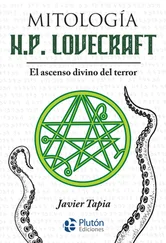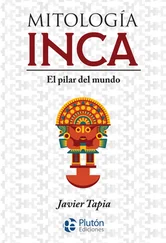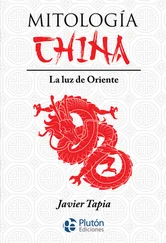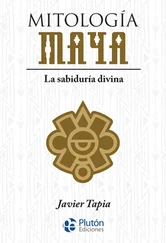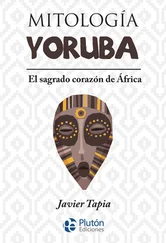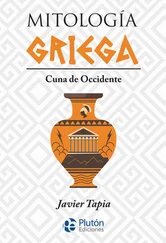My mother avoided bodily matters, too. She never spoke openly about sex. She never undressed in front of me. She disliked dirty jokes or nudity in movies. For his own part, Milton was unable to discuss the birds and the bees with his young daughter, and so I was left, in those years, to figure things out for myself.
From hints Aunt Zo let slip in the kitchen I was aware that something happened to women every so often, something they didn’t like, something men didn’t have to put up with (like everything else). Whatever it was, it seemed safely far off, like getting married or giving birth. And then one day at Camp Ponshewaing, Rebecca Urbanus climbed up on a chair. Rebecca was from South Carolina. She had slave-owning ancestors and a trained voice. During dances with the boys from the neighboring camp, she waved a hand in front of her face as though holding a fan. Why was she up on a chair? We were having a talent show. Rebecca Urbanus was maybe singing or reciting the poetry of Walter de la Mare. The sun was still high and her shorts were white. And then suddenly, as she sang (or recited), the back of her white shorts darkened. At first it appeared to be only a shadow of the surrounding trees. Some kid’s waving hand. But no: while our band of twelve-year-olds sat watching, each of us in camp T-shirt and Indian headband, we saw what Rebecca Urbanus didn’t. While her upper half performed, her bottom half upstaged her. The stain grew, and it was red. Camp counselors were unsure how to react. Rebecca sang, arms outflung. She revolved on her chair before her theater-in-the-round: us, staring, perplexed and horrified. Certain “advanced” girls understood. Others, like me, thought: knife wound, bear attack. Right then Rebecca Urbanus saw us looking. She looked down herself. And screamed. And fled the stage.
I returned from camp browner and leaner, pinned with a single badge (ironically, for orienteering). But that other badge, which Carol Horning displayed so proudly the first day of school, I was still without. I felt ambivalent about this. On the one hand, if Rebecca Urbanus’s mishap was any indication, it might be safer to stay the way I was. What if something similar happened to me? I went through my closet and threw out anything white. I stopped singing altogether. You couldn’t control it. You never knew. It could happen anytime.
Except, with me, it didn’t. Gradually, as most of the other girls in my grade began to undergo their own transformations, I began to worry less about possible accidents and more about being left behind, left out.
I am in math class, sometime during the winter of sixth grade. Miss Grotowski, our youngish teacher, is writing an equation on the blackboard. Behind her, at wooden-topped desks, students follow her calculations, or doze, or kick each other from behind. A gray winter Michigan day. The grass outside resembles pewter. Overhead, fluorescent lights attempt to dispel the season’s dimness. A picture of the great mathematician Ramanujan (whom we girls at first took to be Miss Grotowski’s foreign boyfriend) hangs on the wall. The air is stuffy in the way only air at school can be stuffy.
And behind our teacher’s back, in our desks, we are flying through time. Thirty kids, in six neat rows, being borne along at a speed we can’t perceive. As Miss Grotowski sketches equations on the board, my classmates all around me begin to change. Jane Blunt’s thighs, for instance, seem to get a little bit longer every week. Her sweater swells in front. Then one day Beverly Maas, who sits right next to me, raises her hand and I see darkness up her sleeve: a patch of light brown hair. When did it appear? Yesterday? The day before? The equations get longer and longer throughout the year, more complicated, and maybe it’s all the numbers, or the multiplication tables; we are learning to quantify large sums as, by new math, bodies arrive at unexpected answers. Peter Quail’s voice is two octaves lower than last month and he doesn’t notice. Why not? He’s flying too fast. Boys are getting peach fuzz on upper lips. Foreheads and noses are breaking out. Most spectacularly of all, girls are becoming women. Not mentally or emotionally even, but physically. Nature is making its preparations. Deadlines encoded in the species are met.
Only Calliope, in the second row, is motionless, her desk stalled somehow, so that she’s the only one who takes in the true extent of the metamorphoses around her. While solving proofs she is aware of Tricia Lamb’s purse on the floor next to her desk, of the tampon she glimpsed inside it that morning—which you use how, exactly?—and whom can she ask? Still pretty, Calliope soon finds herself the shortest girl in the room. She drops her eraser. No boy brings it back. In the Christmas pageant she is cast not as Mary as in past years but as an elf . . . But there’s still hope, isn’t there? . . . because the desks are flying, day after day; arranged in their squadron, the students bank and roar through time, so that Callie looks up from her ink-stained paper one afternoon and sees it is spring, flowers budding, forsythia in bloom, elms greening; at recess girls and boys hold hands, kissing sometimes behind trees, and Calliope feels gypped, cheated. “Remember me?” she says, to nature. “I’m waiting. I’m still here.”
As was Desdemona. By April of 1972, her application to join her husband in heaven was still working its way though a vast, celestial bureaucracy. Though Desdemona was perfectly healthy when she got into bed, the weeks, months, and finally years of inactivity, coupled with her own remarkable willpower to do away with herself, brought her the reward of a Physician’s Handbook of ailments. During her bedridden years Desdemona had fluid in her lungs; lumbago; bursitis; a spell of eclampsia that manifested itself a half-century later than etiologically normal and then just as mysteriously vanished, to Desdemona’s regret; a severe case of shingles that made her ribs and back the color and texture of ripe strawberries and stung like a cattle prod; nineteen colds; a week of purely figurative “walking” pneumonia; ulcers; psychosomatic cataracts which clouded her vision on the anniversaries of her husband’s death and which she basically just cried away; and Dupuytren’s contracture, where inflamed fascia in her hand curled her thumb and three fingers painfully into her palm, leaving her middle finger raised in an obscene gesture.
One doctor enrolled Desdemona in a longevity study. He was writing an article for a medical journal on “The Mediterranean Diet.” To that end he plied Desdemona with questions about the cuisine of her homeland. How much yogurt had she consumed as a child? How much olive oil? Garlic? She answered every one of his queries because she thought his interest indicated that there was something, at last, organically the matter with her, and because she never missed a chance to stroll through the precincts of her childhood. The doctor’s name was Müller. German by blood, he renounced his race when it came to its cooking. With postwar guilt, he decried bratwurst, sauerbraten, and Königsberger Klopse as dishes verging on poison. They were the Hitler of foods. Instead he looked to our own Greek diet—our eggplant aswim in tomato sauce, our cucumber dressings and fish-egg spreads, our pilafi , raisins, and figs—as potential curatives, as life-giving, artery-cleansing, skin-smoothing wonder drugs. And what Dr. Müller said appeared to be true: though he was only forty-two, his face was wrinkled, burdened with jowls. Gray hair prickled up on the sides of his head; whereas my father, at forty-eight, despite the coffee stains beneath his eyes, was still the possessor of an unlined olive complexion and a rich, glossy, black head of hair. They didn’t call it Grecian Formula for nothing. It was in our food! A veritable fountain of youth in our dolmades and taramasalata and even in our baklava, which didn’t commit the sin of containing refined sugar but had only honey. Dr. Müller showed us graphs he’d made, listing the names and birth dates of Italians, Greeks, and a Bulgarian living in the Detroit metropolitan area, and we saw our own entrant—Desdemona Stephanides, age ninety-one—going strong in the midst of the rest. Plotted against Poles killed off by kielbasa, or Belgians done in by pommes frites, or Anglo-Saxons disappeared by puddings, or Spaniards stopped cold by chorizo, our Greek dotted line kept going where theirs tailed off in a tangle of downward trajectories. Who knew? As a people we hadn’t had, for the past few millennia, that much to be proud of. So it was perhaps understandable that during Dr. Müller’s house calls we failed to mention the troubling anomaly of Lefty’s multiple strokes. We didn’t want to skew the graph with new data, and so didn’t mention that Desdemona was actually seventy-one, not ninety-one, and that she always confused sevens with nines. We didn’t mention her aunts, Thalia and Victoria, who both died of breast cancer as young women; and we said nothing about the high blood pressure that taxed the veins within Milton’s own smooth, youthful exterior. We couldn’t. We didn’t want to lose out to the Italians or even that one Bulgarian. And Dr. Müller, lost in his research, didn’t notice the store display of mortuary services next to Desdemona’s bed, the photograph of the dead husband next to the photograph of his grave, the abundant paraphernalia of a widow abandoned on earth. Not a member of a band of immortals from Mount Olympus. Just the only member left alive.
Читать дальше
Конец ознакомительного отрывка
Купить книгу


